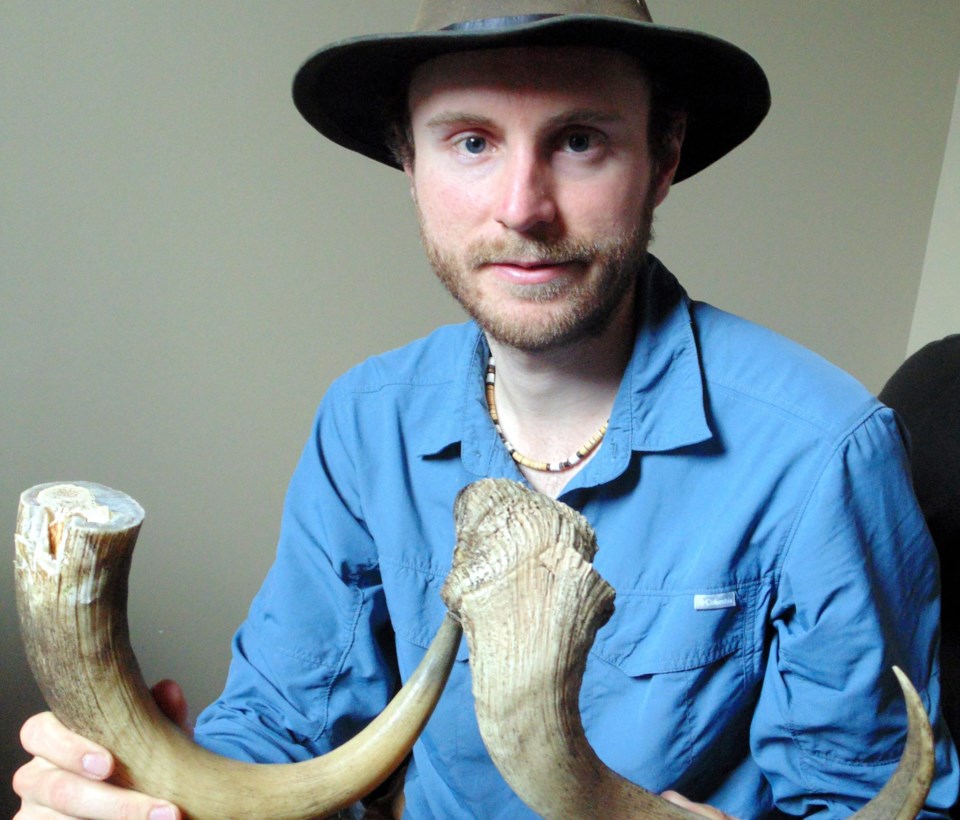For Adam Shoalts, the age of exploration is today.
The 28-year-old Pelham native is making a career out of travelling through uncharted and unnamed rivers, forests, deserts, jungles and mountains.
Even with satellite scanning, Shoalts said the world is full of places that remain unexplored.
“I am trying to demonstrate the age of exploration is not over. There are parts of the world we do not know as well as we should,” he said
“It is still possible to be an explorer in the 21st century.”
Shoalts for 22 days in August with championship lacrosse player Travis Hill of Fort Erie, canoed down a nameless river on Victoria Island in Nunavut, more than 500 kilometres above the Arctic Circle.
“We spent more time on foot dragging the canoe than canoeing,” he said.
“We portaged about 100 kilometres in all,” said Shoalts about the shallow and often ice-covered river.
No known expedition had ever canoed the river.
It was summer in the land of the midnight sun, but it was cold and windy with occasional snow. They picked up shed musk-ox hair to stuff in their clothes to keep themselves warm during the 22-day trip.
They navigated by the sun and landmarks because compasses would not work so close to the magnetic pole.
The pair carried an Explorers Club flag during the journey. The 110-year-old New York City based international club promotes the advancement of field research. Its flag has flown on the moon, Mt. Everest, the North and South Poles and deepest oceans.
Shoalts and Hill photographed wildlife such as musk-oxen and caribou as well as found early 20th century archaeological sites where the nameless river met the Arctic Ocean.
“The musk-oxen hadn’t seen people before so you could get close, but not too close,” Shoalts said. He brought back parts of skeletons picked up along the way.
“I’d like to go back and do more. We were there during the excitement over finding Franklin’s ship,” said Shoalts about the lost 19th century Arctic explorer Sir John Franklin.
After a couple of weeks back in Niagara, he headed west to join a British Columbia expedition.
Shoalts, who grew up canoeing Coyle Creek in south Pelham, said exploring has become a full-time occupation.
When he isn’t on an expedition – June in Central America, August in the Arctic, September in British Columbia – he is writing reports, looking for sponsors, speaking at libraries, schools or clubs, and planning the next trip.
Shoalts said he is writing a book about his recent adventures with his Arctic trip as the finale.
Like an athlete in his 20s and 30s, he is in the prime of his career.
“I will always be an explorer but now is the time physically for the hard work.”
It includes hiking, paddling, climbing and enduring cold, wetness, heat, insects, and the other risks that come with looking into the unknown.
“I try to measure myself against my explorer heroes like Alexander Mackenzie, Samuel Hearn, David Thompson and Grey Owl.”
A fellow with the Royal Canadian Geographical Society, he said Canadians have a responsibility to the world to explore and to preserve the world’s largest wilderness area.
When he speaks to students, Shoalts said, he emphasizes that anyone can be an explorer, even in their backyard.
“You can learn about trees, plants, insects and birds by getting away the computer and going outside,” he said.
“I still get excited when I see deer cross the road or watch squirrels.”



